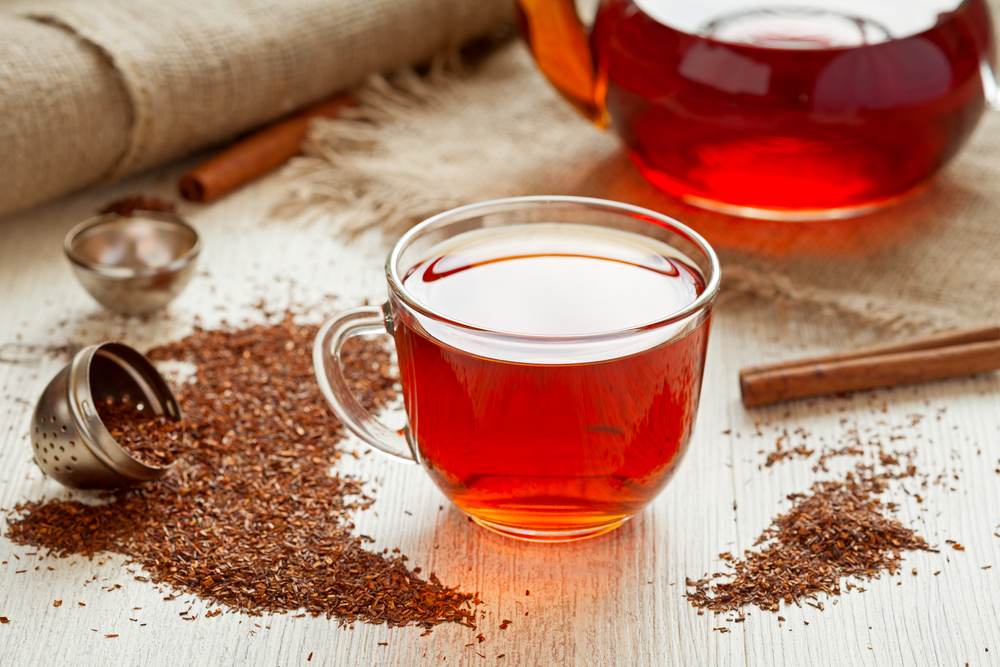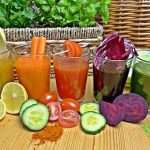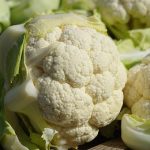Rooibos tea is gaining popularity for its health benefits and delicious taste. It has been enjoyed throughout the world, having been consumed in southern Africa for centuries. It is a delicious, caffeine-free substitute for black and green tea.
Advocates praise rooibos because of its potential health benefits. They claim that its antioxidants can protect against heart disease, stroke, and cancer.
You may be curious if these benefits can be supported by evidence. This article examines the possible health benefits and possible side effects of rooibos.
What is Rooibos Tea?
Rooibos is a South African traditional beverage that is made from the leaves and stems of a South African shrub. It is similar to black tea in that it contains many antioxidants. Rooibos tea can also be known as red tea, red bush tea, or red tea.
Rooibos tea is a herbal tea that is not related to black or green tea. It is made from leaves of a shrub called Apalathus linearis. These are usually grown along the west coast of South Africa. Traditional rooibos is made by fermenting the leaves. This gives them a red-brown hue.
Contrary to what some claim, rooibos is not a good source for vitamins or minerals.
It is also rich in powerful antioxidants that may provide health benefits.
1. Caffeine Free
Caffeine can be found in green and black teas as a natural stimulant. It is generally safe to consume moderate amounts caffeine. It could even be beneficial for mood, concentration, and exercise performance. However, excessive drinking of caffeine has been linked with heart palpitations and increased anxiety, sleep problems, headaches, and sleep problems. Because of this some people decide to limit or avoid caffeine intake.
2. Low in Tannins
Rooibos has lower tannin levels than regular green or black teas. Tannins, which are natural compounds found in green and dark teas, can interfere with the absorption certain nutrients such as iron.
3. Free of Oxalic Acids
Finally, unlike green tea and black tea, red rooibos does not contain oxalic acids. High levels of oxalic acids can increase your risk for kidney stones. This makes rooibos a great option for people with kidney problems.
Rooibos is a great alternative to green or black teas.
4. Rich in Antioxidants – Promotes Heart Health
Rooibos is linked to health benefits because of its high levels health-promoting antioxidants such as quercetin and aspalathin. Antioxidants can help protect cells against damage from free radicals. Their effects may decrease your risk of developing heart disease in the long-term.
Quercetin is a flavonoid found in plants, onions, green tea, and apples. Quercetin has antioxidants anti-inflammatory properties that can help:
- prevent heart disease
- treat arthritis
- kill cancer cells
- control blood sugar
- treat bladder infections
There is not scientific data to back up these quercetin claims. More research is needed.
Aspalathin is a rooibos flavonoid with established blood glucose lowering properties.
Rooibos may improve heart health by positively affecting blood sugar. It may lower “bad” LDL cholesterol, and increase “good” HDL cholesterol for those at high risk of developing heart disease.
The antioxidants in rooibos have been linked to a healthier heart.
First, drinking rooibos tea may have beneficial effects on blood pressure by inhibiting angiotensin-converting enzyme (ACE). ACE indirectly raises blood pressure by causing blood vessels to contract.
A study of 40 overweight people at high risk for heart disease found that six cups of rooibos tea per day for six weeks reduced “bad” LDL cholesterol and increased “good” HDL cholesterol in 40 participants. Healthy cholesterol levels provide additional protection against various heart conditions such as strokes and heart attacks.
However, healthy people did not experience the same effect.
5. May Lower Cancer Risk
Rooibos tea has been proven to kill cancer cells and prevent the growth of tumors in test tubes. These effects have not been confirmed in human studies.
Remember that human studies on rooibos, and cancer, are still needed.
6. May Benefit Type 2 Diabetes
Rooibos tea, the only natural source of antioxidant aspalathin. Aspalathin in animal studies suggest is may have anti-diabetc properties.
One study on mice with type 2 diabetics found that aspalathin lowered insulin resistance and balanced blood sugar levels. This could be a promising result for people who have or are at high risk of developing type 2 diabetes.
Side Effects & Warnings
In general, rooibos is very safe. Negative side effects are rare but have been reported.
Drinking large amounts rooibos was linked to an increase of liver enzymes. This can often be a sign of a liver problem. Quercetin effects how the liver breaks down medications.
Certain tea compounds can stimulate the production and release of estrogen.
Do not take if pregnant, breast feeding or have kidney problems. Do not take if you take medication for high blood pressure, diabetes, Warfarin, antibiotics, or cyclosporine.
Please check with your doctor before taking any supplement or herbal remedy.
Takeaway
Rooibos Tea is a healthy, delicious and nutritious beverage. It is free of caffeine, low in tannins, and high in antioxidants. This may provide a variety health benefits. However, the health claims about the tea are often based on anecdotal evidence or animal studies and are not supported by scientific human trials. The absence of evidence does not necessarily indicate that these health claims are false. It just means it is not yet clear if the health benefits of rooibos tea as seen in animal and test-tube studies translate into real-world benefits for humans.









